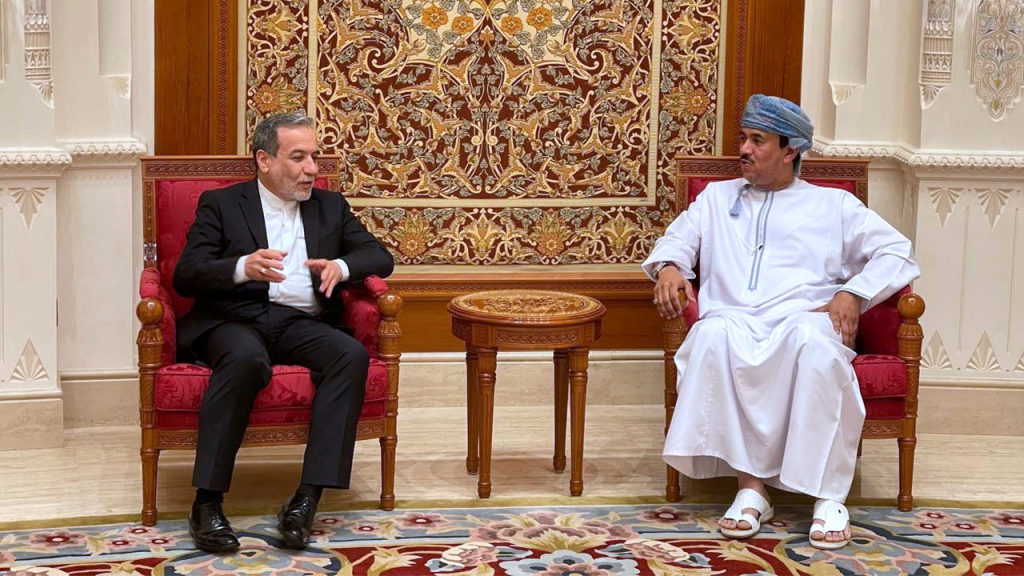Iran’s Foreign Minister, Seyed Abbas Araghchi, has reiterated that the country will continue its uranium enrichment program regardless of negotiations with the United States over a potential nuclear deal. In a recent statement, Araghchi emphasized Iran’s firm stance on its rights as a Nuclear Non-Proliferation Treaty member, while U.S. officials are engaging in discussions to prevent further nuclear escalation. The backdrop to these talks is the increasing stockpile of 60% enriched uranium, raising concerns among international observers.
| Article Subheadings |
|---|
| 1) Iran’s Commitment to Enrichment |
| 2) U.S.-Iran Negotiations Overview |
| 3) Rising Nuclear Concerns |
| 4) Political Repercussions in the U.S. |
| 5) Future Implications for Global Security |
Iran’s Commitment to Enrichment
In a statement on social media platform X, Foreign Minister Seyed Abbas Araghchi asserted that Iran will persist in enriching uranium irrespective of the outcomes of ongoing negotiations with the U.S. He remarked, “Iran can only control what we Iranians do,” which underscores the inherent belief that Iran will uphold its nuclear aspirations. The foreign minister projected a resolute image of Iran, emphasizing that any negotiations conducted publicly could lead to misunderstandings and misinformation. His remarks aimed to clarify Iran’s unwavering position, declaring, “Our stance on Iran’s rights as a Nuclear Non-Proliferation Treaty member is crystal clear.” This statement aligns with Iran’s historical emphasis on its sovereign right to develop nuclear technology.
U.S.-Iran Negotiations Overview
The ongoing negotiations between the U.S. and Iranian officials, which have transpired mainly in Oman, have yet to yield a substantial agreement. Secretary of State Mike Pompeo noted that discussions had occurred during four rounds since the inauguration of President Donald Trump. U.S. officials have been vocal about the urgency of these negotiations, with President Trump stating directly to Iran’s leaders that they must act rapidly to secure an advantageous deal or face dire consequences. The dialogue reflects a complex relationship, with previous administrations navigating the same waters with varying strategies.
Rising Nuclear Concerns
The International Atomic Energy Agency (IAEA) has raised alarms regarding Iran’s nuclear proliferation, indicating that the country has significantly increased its stockpile of 60% enriched uranium from 182 kg to 275 kg within a short time frame in early 2025. The alarming growth of these uranium reserves has escalated concerns, as Marco Rubio highlighted that Iran is at a critical juncture where it could quickly transition to enrich uranium to 90%, thereby becoming a potential nuclear weapons state. Araghchi’s comments, alongside the reports from the IAEA, illuminate a precarious situation that carries considerable implications for regional and global security.
Political Repercussions in the U.S.
Political discussions surrounding the nuclear negotiations present a divided landscape in the U.S. On one hand, proponents of the deal stress the importance of diplomatic engagement to curb Iran’s nuclear capabilities. On the other hand, critics argue that the negotiations empower Iran’s nuclear ambitions. A notable voice in this discourse, Marco Rubio, recently warned that Iran is dangerously close to developing nuclear weapon capabilities, heightening the urgency for the U.S. to take definitive action. The contrasting viewpoints contribute to a deeper political schism regarding the best approach to addressing Iran’s nuclear activities.
Future Implications for Global Security
As the negotiations continue, the future of nuclear non-proliferation in the region remains uncertain. The ongoing dialogue touches upon significant global security ramifications, as Iran’s potential for nuclear weapons could embolden its regional positioning. If Iran were to attain this military capability, the delicate balance of power in the Middle East could shift dramatically, prompting responses from other nations frightened by the prospect of a nuclear-armed Iran. The global community watches closely, acknowledging that the outcomes of these negotiations will have enduring consequences not only for Iran and the U.S. but for international stability as a whole.
| No. | Key Points |
|---|---|
| 1 | Iran will continue enriching uranium regardless of U.S. negotiations. |
| 2 | U.S. officials have engaged in four rounds of talks in Oman. |
| 3 | The IAEA has reported alarming increases in Iran’s enriched uranium stockpile. |
| 4 | Political opinions in the U.S. are sharply divided over the handling of Iran’s nuclear program. |
| 5 | The potential for a nuclear Iran poses significant risks to global security. |
Summary
The dialogue between Iran and the United States regarding the nuclear program remains a pivotal issue in international relations. Despite efforts at negotiation, Iran’s commitment to uranium enrichment continues to raise alarms about the potential for nuclear proliferation. The outcomes of these discussions will not only affect the two nations involved but also hold vast implications for global peace and security. As international observers monitor the situation, the path forward is fraught with challenges and responsibilities requiring nuanced diplomacy.
Frequently Asked Questions
Question: Why is Iran continuing its uranium enrichment program?
Iran maintains that its uranium enrichment activities are a matter of national pride and sovereign rights under the Nuclear Non-Proliferation Treaty. Officials assert that these actions will continue irrespective of current negotiations with the U.S.
Question: What has the U.S. response been to Iran’s nuclear ambitions?
The U.S. has engaged in multiple rounds of negotiations aimed at curtailing Iran’s nuclear capabilities, with officials emphasizing the need for a swift resolution to prevent Iran from becoming a nuclear weapons state.
Question: What are the international implications if Iran develops nuclear weapons?
If Iran were to successfully develop nuclear weapons, it could significantly shift the balance of power in the Middle East, potentially leading to increased tensions and arms races among neighboring countries and broader implications for global security.


